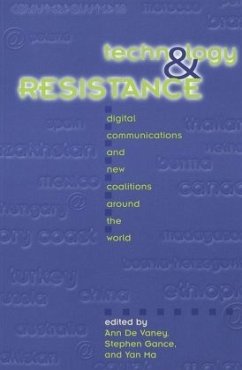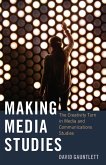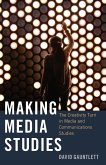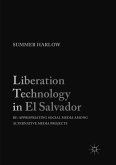What happens when the means of communication, often centralized, become diffused? What happens when coalitions in South Africa, Malawi, China, Russia, Turkey, Burma, El Salvador, and the United States utilize electronic technologies to seek enfranchisement? This book describes such creative uses by emergent democratic movements and other cultural alliances seeking solidarity in these countries. It investigates the way the strange confluence of technological language and radical social change opens new discursive terrain. Unusual fissures and interstices appear; some auger well for the distribution of political power and the promotion of free speech, while unfortunately some open gaps within old hierarchies implicit in capitalistic discourses of technology.
"This is a fascinating set of case studies that use various technologies such as email, the Internet, facsimile, and the telephone, in democratic and liberatory projects around the world. While acknowledging the exclusionary effects of new technologies, which are unequally available to different groups, this book documents how new discursive spaces can be opened up with technologies that further the realization of a more just and humane world. This is cutting edge work that has fascinating implications in many different fields." (Ken Zeichner, Hoefs-Bascom Professor of Education, University of Wisconsin-Madison)
"De Vaney is one of the most theoretically sophisticated observers of technological cultural politics in education. In placing technology in the politics of global/local relations, De Vaney, Gance, and Ma have provided an important contribution - the concrete place of technology within the field of social practice and change. The systematic and theoretically sophisticated analyses of the everyday technologies of the Internet, faxes, and telephones explores how technology functions simultaneously to open and close spaces for social action." (Thomas S. Popkewitz, University of Wisconsin-Madison)
"All too often, discussions of technology are simply technical. This is definitely not the case with 'Technology and Resistance'. It points to why it is so important that we think about technology socially and critically. This is a very valuable book." (Michael W. Apple, John Bascom Professor of Education, University of Wisconsin-Madison)
"De Vaney is one of the most theoretically sophisticated observers of technological cultural politics in education. In placing technology in the politics of global/local relations, De Vaney, Gance, and Ma have provided an important contribution - the concrete place of technology within the field of social practice and change. The systematic and theoretically sophisticated analyses of the everyday technologies of the Internet, faxes, and telephones explores how technology functions simultaneously to open and close spaces for social action." (Thomas S. Popkewitz, University of Wisconsin-Madison)
"All too often, discussions of technology are simply technical. This is definitely not the case with 'Technology and Resistance'. It points to why it is so important that we think about technology socially and critically. This is a very valuable book." (Michael W. Apple, John Bascom Professor of Education, University of Wisconsin-Madison)








